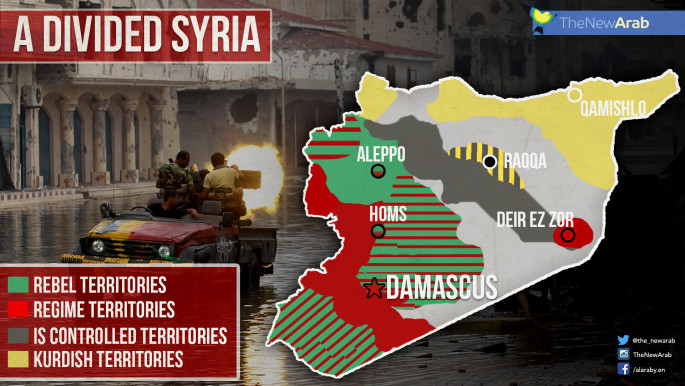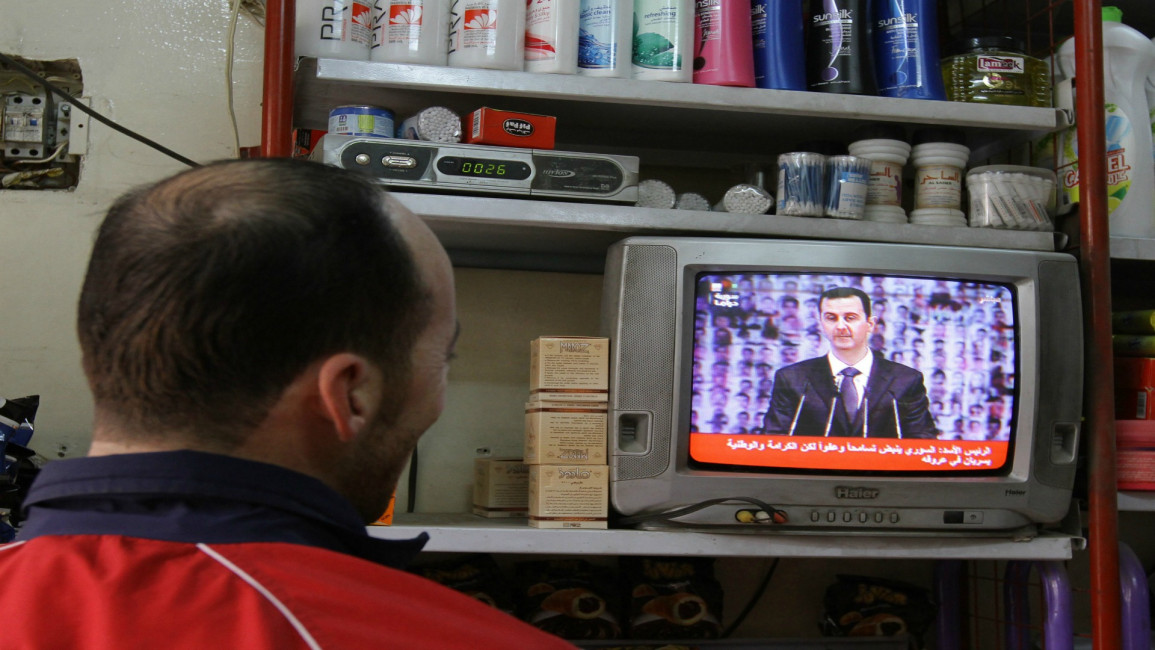
Reading Orwell in Damascus
What would George Orwell have thought about the conflict in Syria?
One imagines that President Assad and his coalition of allies have learned from his writings with particular regard to the power of language and conviction. Orwell in his classic 1984 introduced the world to the notion of "doublethink". The concept was the ability to simultaneously accept two mutually contradictory beliefs as correct.
The use of language by the Syrian regime and its Russian allies is a key component of their strategic narrative. Orwell would have been proud of the attempts to articulate that "war is peace".
The language of conflict has been captured and re-imagined. Ceasefires no longer involve ceasing fire - Assad said earlier this month that a truce deal "doesn't mean that each party will stop using weapons". Meanwhile, the Russians claim to only have injured a 'handful' of civilians - despite dropping hundreds of unguided bombs and recently being linked to the destruction of several hospitals.
The tactics are simple, effective and need challenging. Admit nothing and flip any accusation on its head. Following the hospital bombings, the Syrian ambassador to the UN even suggested that MSF were a branch of French intelligence.
The use of language has become an integral part of the propaganda narrative around the conflict and it is defined by this doublethink.
Assad's media strategy involves periodic long one-to-one interviews where he pontificates on the conflict and wider issues surrounding it. The use of the word "conflict" is even challenged, with the president preferring to use "the events".
Although "events" in Syria have metastasised significantly over the past five years, Assad's message has been incredibly consistent. Never is responsibility taken for any significant mistakes on the part of the regime, but rather responsibility lies with "terrorists" and the countries - usually the US, Turkey, Saudi Arabia and Qatar - that supposedly support them.
Thus Assad is a victim of events rather than the perpetrator.
 |
The language of conflict has been captured and re-imagined |  |
When asked about the massive civilian casualties, many linked to widespread government shelling on opposition-held areas, Assad poses and then answers his own question that when fighting against terrorists "there's no reason to shell civilians" and that "it is impossible for a state to target civilians".
If challenged about UN reports on statistics as to the humanitarian impact the response is always to question their veracity and suggest that they have been "politicised" by Syria's enemies. The large number of displaced and refugees are, in Assad's view, a consequence of "terrorists" forcing them out.
The logic then follows that the only civilians left in "terrorist-held" areas are somehow in collusion with them and therefore terrorists themselves.
| Article continues below |
 |
Doublethink requires Assad to deny even the basic strategy of his remaining in power. He said in an interview last year that "remaining president had never been my objective". When challenged on his regime's actions, Assad is always careful to stress that "in Syria we have a state, not a regime".
So while many see an authoritarian regime desperately battling to stay in power, Assad sees a state legitimately pursuing a defence against external enemies and their "terrorist" proxies.
The root of Assad's doublethink, and his greatest tool and technique therefore, is his ability to own and adopt the fight against terrorism. This opens the wider need for the term not to be defined as individual statesmen sees fit - ie: against their enemies - but rather by criteria around the international laws of war.
 |
Orwell's terrifying dystopia that he created in 1984 looks a remarkably sane place |  |
At present the use by governments across the world of the fight against "terrorism" to justify their policies makes it very hard for non-state actors in particular to justify a potentially legitimate use of violence.
A protected, non-politicised, definition of "terrorism" that is accepted, respected and upheld in the court of both public opinion and international institutions disarms leaders like Assad from one of their greatest weapons.
The term must properly factor in what constitutes "state terrorism" in particular, which is something that many countries may be reluctant to do.
Orwell's terrifying dystopia that he created in 1984 looks a remarkably sane place when compared to the chaos that has enveloped the Syria of 2016. As we look ahead, we must seek to find practical means to challenge the doublethink that is all-pervasive at the top of the regime.
James Denselow is an author and writer on Middle East politics and security issues. He is a former board member of the Council for Arab-British Understanding (CAABU) and a director of the New Diplomacy Platform. Follow him on Twitter: @jamesdenselow
Opinions expressed in this article remain those of the author and do not necessarily represent those of The New Arab, its editorial board or staff.




